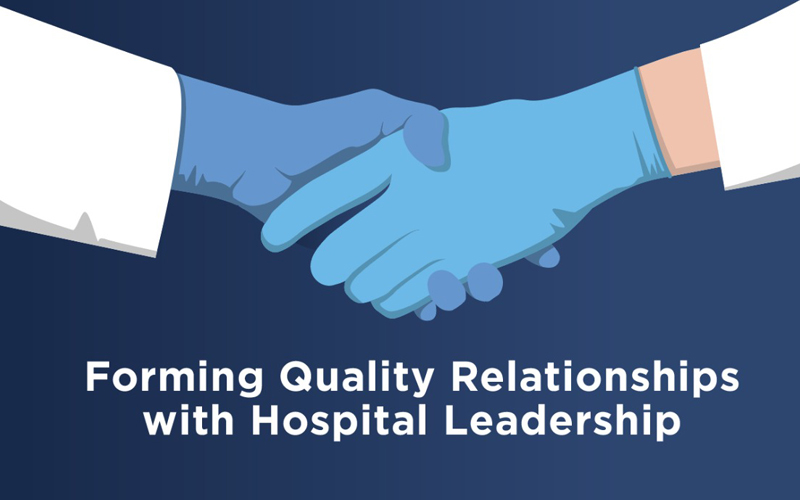Forming Quality Relationships with Hospital Leadership
By Brian M. Reynolds CRMST, CRCST, CIS, CER, CHL
When going into a new healthcare organization you always want to give yourself time to get to know the facility and find out what works, and what has not been working before you start making any changes. You want to confirm policies are in place and currently based upon regulatory requirements and best practice guidelines. Additionally, you need to ensure staff personnel is familiar with the policies and protocols; in-order to carry out their daily assigned task for effective efficiency.
In a new management role, meeting Hospital Leadership is essential, as it is imperative to establish a firm footing with their expectations, visions, and responsibilities to meet the organization’s goals and mission for sustainability. Likewise, the meeting will give you the opportunity to interview the leadership as well; hence, ascertaining, facts about their pain points and needs for process improvement within the department. It gives you the ability to envision the directional goals for departmental growth according to Hospital Leadership. Additionally, the meeting with leadership will assist you in gathering helpful information to set a firm departmental foundation for overcoming challenges that could potentially arise during the implementation process as the new manager.
Always ensure you communicate directly to your Upper Management/Hospital Leadership on process changes and guidelines that your department must follow. Most of the information that you need to be successful is already available, so no need to recreate the wheel. There are standards, guidelines, and sample templates in circulation for utilization within the healthcare and surgical industry. Take the time to research for evidence-based practice literature that affects your hospital department and utilize the available resources that are applicable and support your daily assigned task/duties.
The Sterile Processing Department is the hub of hospital organizations and in order to operate efficiently, planning must take place; hence, conduct Daily Huddles for SPD to determine what surgical instrumentation/sets are needed for cases. You ask the question about case volumes and assist with getting the items needed for cases. This may require you to send them a list of needed items to be most successful. Make sure key stakeholders are available when gathering the information; therefore, a clear and concise plan is implemented and orchestrated for compliance.
In preparation for your interview meeting with Hospital Leadership/Management officials, ask questions to verify your goals are in alignment with theirs and vice versa. Remember this is the opportunity for you to interview them as well! Questions for consideration may be: Are their hospital goals/expectations realistic? Does the demand meet industry standards? Are they in line with regulatory requirements and industry standards? What did their last accreditation survey reveal? Were there any process improvements required and were the improvements done?
Most importantly, you want to know and have the support of Hospital Leadership, as they are instrumental and pivotal to ensuring a successful Sterile Processing Department!
Moab Healthcare provides SPD Staffing, Interim Management, Consulting, and Education. We offer top industry leaders with vast experience in running day-to-day Sterile Processing operations, as well as making recommendations for process improvement.
Contact us at hello@moabhealthcare.com or 1-833-SPD-TECH
Brian M. Reynolds CRMST, CRCST, CIS, CER, CHL


